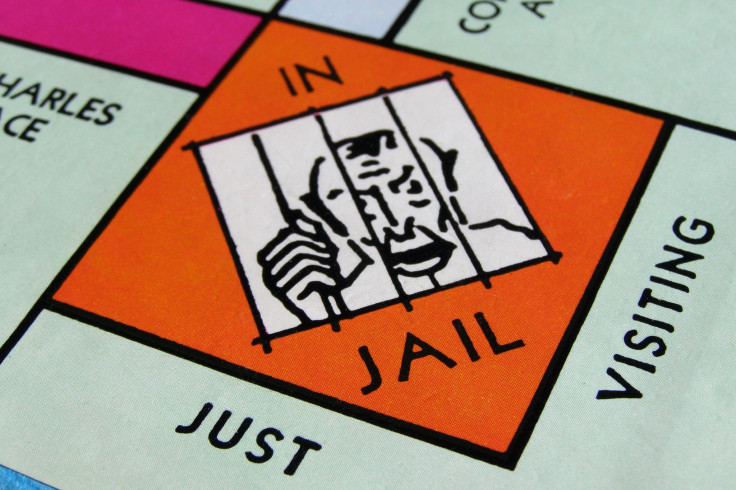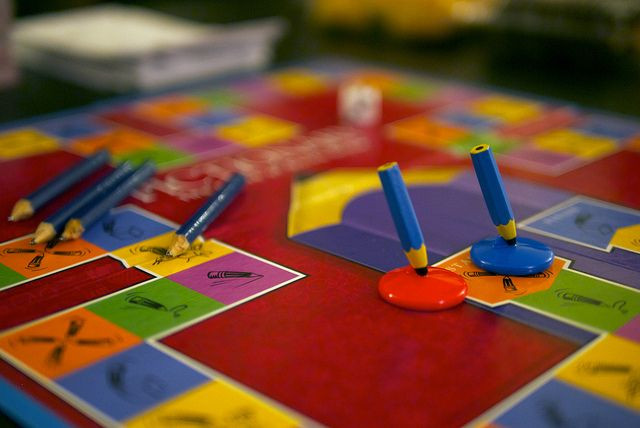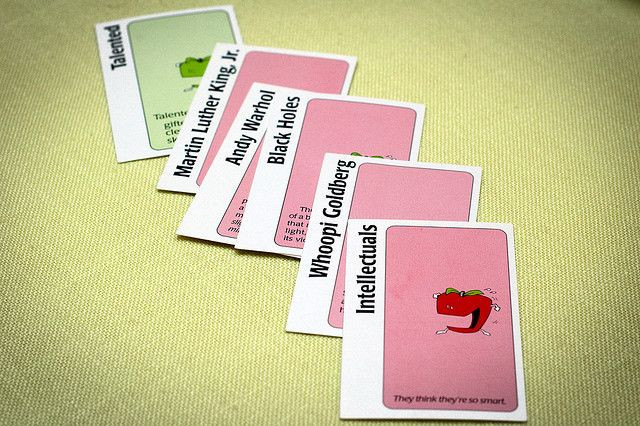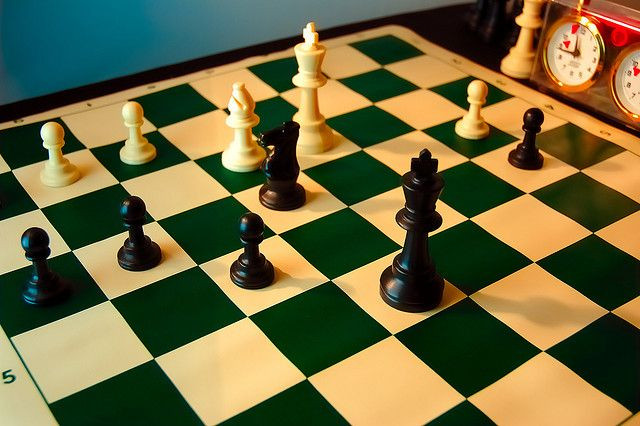Not All Fun And Games: Cut-Throat Monopoly And The Psychology Of Board Games

Fifteen letters into the puzzle, Rufus had only a T at his disposal. But after a moment, the solution descended upon him as if it had been illuminated all along: Championship Match.
“Yeah, that’s right,” responded a flummoxed Pat Sajak, before walking over to Rufus, past the other wide-eyed contestants, to congratulate him on the extra $5,400 he had just earned. After watching the video of Rufus’s divine act, we, like the rest of the people who bore witness to the Wheel of Fortune miracle, began to wonder how such a feat was possible. And for that matter, how do other expert game players recruit their psychology to win?
We decided to find out.
Pictionary

The best Pictionary players excel at two things simultaneously: translating the text on a card into a mental picture, so that they can reproduce the essence of that picture very quickly into a concrete representation, and they can perceive, hopefully even quicker, what it is their partner has drawn.
The cognitive firepower required for these skills is actually fairly astounding given the time constraints. Psychologists who have studied the science of art conclude the brain has some special tactics for arriving at lighthouse within seconds, namely, the temporal lobe cortex’s propensity to “group” lines and objects together to form coherent images.
“The primate brain has over two dozen visual areas each of which is concerned with a different visual attribute such as motion, colour, depth, form, etc.,” wrote psychologists V.S. Ramachandran and William Hirstein in their 1999 essay “The Science of Art.” Errant squiggles don’t register as anything in particular most likely because our brains haven’t built a hook on which that pattern of lines can hang. Something is (quite literally) getting lost in translation between the drawer and guesser.
“When artists speak of composition, or grouping,” the authors write, “they are probably unconsciously tapping into these very same principles.”
Monopoly

Rick Marinaccio doesn’t play Monopoly like you or I play Monopoly. He doesn’t care about building an empire of hotels. He wants to beat you with one monopoly as fast as possible, and his brutish style of play mixed with an uncanny foresight let him make moves others won’t understand until it’s too late. He is the third-best Monopoly player in the world and ranked No. 1 in the United States.
Marinaccio plays Monopoly similar to how we assume grandmasters play chess. He sees the board as more of a fluid entity than a fixed reality, and he uses that to his advantage as he detects gaps in his opponents’ style of play. “I’m usually trying to see what’s going to happen three moves ahead,” Marinaccio, an attorney from Buffalo, N.Y., told Medical Daily, emphasizing the importance of capturing control. “I want to be the person forcing the moves. I don’t want to let the game happen in front of me.”
Memory is another underrated skill of Monopoly, Marinaccio says. In each game, he’ll memorize how much money each player has and how many community chest and chance cards have been played — the only luck involved in the game, aside from dice rolls — so he can calculate his best move. He’ll also seek out the weakest player and try to force errors in his favor, both to maximize his gain and forestall boosts to his opponents. “I put myself in the best position to win.”
Not all judges appreciate his aggressive gameplay. “I talk a lot around the table. I try to let my point of view be known,” he said. Before matches he’ll mingle with the other players and earn their trust. It helps him get a feel for how their personalities will translate onto the board. However, he emphasizes his vocal tactics aren’t mean to be deceptive. “I’m not always steering them wrong. I’m actually telling them something that will benefit them. It just benefits me more.”
Apples to Apples

Trying to guess which people, places, and things satisfy a given adjective would be utterly impossible, if not pretty hard (which is how it usually stands), if our brains didn’t have the ability to read other people’s minds.
Aside from the philosophical problem of other minds, cognitive science likes to figure out how we can read people’s emotions with limited information and understand how fictional characters might feel. When we play Apples to Apples, we have to put ourselves inside the judge’s head. We have to think like he or she thinks. The best evidence suggests it is an exercise in a kind of social telepathy — emotional intelligence mixed with empathy and, as all board games would have it, a little luck.
In 2009, MIT brain scientists Rebecca Saxe unveiled the special brain region responsible for understanding others’ emotions: the right temporoparietal junction, or rTPJ. Reading other people’s thoughts is just about its only function, and it gets sharper with time. Before age 5, kids lack the ability to put themselves inside others’ heads. Good thing Apples to Apples is for players aged 12 and up.
Chess

Expert chess players have at least one thing in common with chicken sexers: They approach their craft with a different set of eyes than the rest of us. When chess masters and grandmasters look at the chessboard, they don’t see individual rooks and bishops. They see patterns — defense chains, weaknesses to exploit, and often entire games that have yet to get played out, all of which they hold in their mind’s eye.
So detailed are grandmasters’ mental catalogs of board configurations, as a party trick they will often play a “simul”: multiple games played at once, in rotation. In 1996, Fernand Gobet and his colleague Herbert Simon, winner of the 1978 Nobel Prize in Economics, studied then World Champion Garry Kasparov as he played a 15-person simul. Kasparov would analyze the move one opponent made, make his own move, and then proceed to the next board, until each game was over. Kasparov had roughly 20 seconds to think about each move to his opponent’s three minutes.
In the end, Kasparov still managed to preserve his ranking of grandmaster. He wasn’t doing anything special. He simply was playing a different game.
“Given the strength of the opposition, Kasparov could not rely only on playing normal moves and waiting for opponents’ mistakes,” Gobet and Simon wrote in their report on the findings. “We conclude that memory and access to memory through the recognition of clues is the predominant basis for the skill of Kasparov, and almost certainly of the other grandmasters of the game.”



























